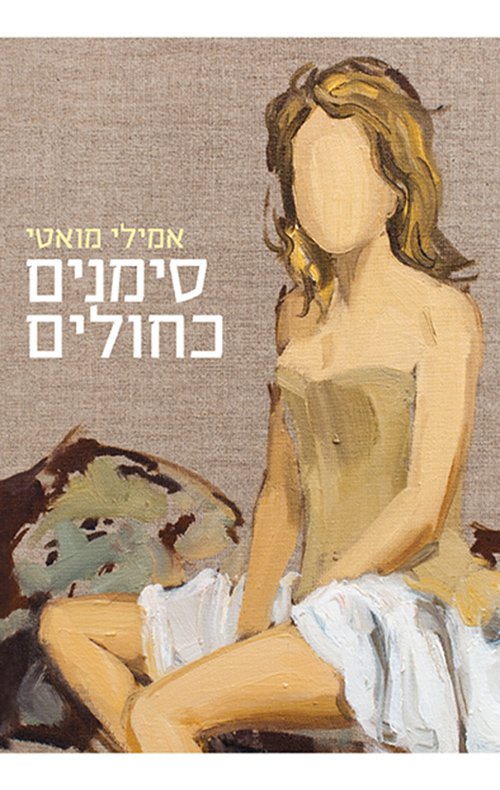
Blue Marks
A young woman travels to Paris to escape her life on the margins of Israeli society. All Iris desires is to start her life anew, in a new language, in a place where no one knows her. With a good job and a rented apartment, her dream seems to have a chance of coming true. But just as she begins to believe she has achieved her goal, it transpires that fate has a different plan in store for her. A divinely handsome man appears before her. He doesn’t take his eyes off her for a moment. He is the man who has only a first name; the man who rapes her; the man she murders.
Behind prison walls, the abyss Iris inhabits is exposed. Via vivid, powerful memories she meanders the tortuous path between pain, hope and redemption: memories of the father who abandoned a home that fell into darkness and of a mother frozen by the trauma; of the streets of Paris that refused to embrace her; of the accursed evening that she thought she would be able to leave behind.
Moatti skillfully paints the portrait of a remarkable heroine who, by her choices and deeds, has rejected the rules of society even at the price of her freedom, becoming in a way a female counterpart of Mersault, the hero of Albert Camus’ L’Étranger. Moatti also deals with the issues of rebellion and the absurd—not as philosophical theory, but rather as the reality of the life of a woman.

-
“Moatti is a talented writer. She has a distinct style of her own, one that she executes very well.”
-
“This is a compact story that ends exactly at the right point, without catharsis, but leaving a sense of hope inspired by strength of the heroine.”
-
“Blue Marks bestows a voice upon a voiceless character without reverberating with a sense of triumph or being intoxicated by itself. It has an open-eyed, even audacious intensity… It leaves its mark on you.”
